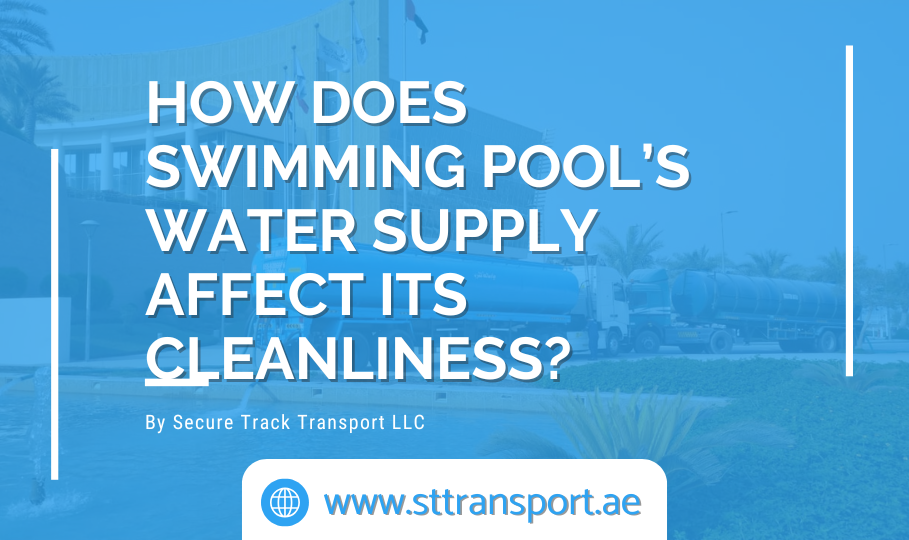Owning a pool is more than just a splash in the sun—it’s an investment in fun, relaxation, and fitness. But what’s the secret to keeping your pool sparkling clean and built to last? Spoiler alert: It’s all in the water supply. Yes, the very source of your pool water plays a starring role in its cleanliness and longevity. Let’s dive in (pun intended) and explore how the quality of the swimming pool water supply can make or break your aquatic haven.
The Foundation of Pool Hygiene: Your Water Supply
Imagine building a house with weak, crumbling bricks. Even the best design wouldn’t save it, right? The same principle applies to pools. Suppose the water you’re filling it with is already contaminated or laden with impurities. In that case, it becomes a breeding ground for bacteria, algae, and other nasties, no matter how much chlorine you dump in.
Hard Water vs. Soft Water: Does It Matter?
Water hardness, or the level of dissolved minerals like calcium and magnesium, is a game-changer.
- Hard Water Problems: Hard water might sound harmless, but it can lead to scaling on pool surfaces and equipment, clogging filters, and creating a rough swimming experience. Plus, those mineral deposits can trap dirt and bacteria, making cleaning a nightmare.
- Soft Water Challenges: While soft water is less likely to cause scaling, it can sometimes become overly aggressive, corroding metal parts and disrupting the pool’s delicate chemical balance.
The Role of pH and Alkalinity in Water Supply
Here’s where things get technical but essential. Your pool water’s pH and alkalinity levels must stay in a Goldilocks zone—not too high, not too low.
- Low pH: If the water supply has a naturally low pH, it can make your pool acidic. This leads to corroded tiles, irritated skin and eyes, and less effective chlorine.
- High pH: On the flip side, high-pH water fosters cloudy water and scale buildup.
Regularly testing your water and adjusting pH levels is like fine-tuning a musical instrument—it keeps everything in harmony.
Contaminants in the Water Supply
You’d think water is water, right? Wrong. Depending on your location, your water supply could carry a mix of unpleasant surprises:
- Organic Contaminants: Leaves, pollen, and even microscopic critters can hitch a ride in untreated water sources.
- Chemical Contaminants: Think industrial waste, fertilizers, and other pollutants. These not only mess with your pool’s cleanliness but can also react with pool chemicals to create harmful byproducts.
- Metals: High levels of iron or copper can lead to unsightly stains and discoloration in your pool.
How Tap Water Affects Pool Cleanliness
Most pool owners rely on tap water, but did you know tap water isn’t always crystal clear? Municipal water supplies often contain chlorine, chloramines, and other chemicals to make it safe for drinking, but these can interact with pool chemicals in ways that create cloudy or foamy water.
The solution? A good pre-filtration system can remove unwanted additives before they hit your pool.
Rainwater and Well Water: Friend or Foe?
Many pool owners supplement their pool water with rainwater or well water, thinking it’s a more eco-friendly option. However, both come with their own baggage:
- Rainwater: While free, it often carries pollutants, debris, and low pH levels, which can disrupt your pool’s chemistry.
- Well Water: It’s often rich in minerals and metals, which means potential scaling, staining, and extra work for your pool filter.
Filtration Systems: Your First Line of Defense
The importance of a robust filtration system can’t be overstated. It’s like having a bouncer at a VIP party, letting the good stuff (clean water) in and keeping the riff-raff (contaminants) out.
- Sand Filters: These are cost-effective and low-maintenance but may struggle with finer particles.
- Cartridge Filters: Great for capturing smaller debris but require regular cleaning.
- Diatomaceous Earth (DE) Filters: The gold standard for pristine water but can be pricey.
How to Maintain Water Quality Over Time
Even if your initial water supply is perfect, ongoing maintenance is crucial. Here’s a cheat sheet:
- Test Frequently: Regularly test for pH, alkalinity, and calcium hardness.
- Shock Treatment: Periodically “shock” your pool to eliminate contaminants.
- Water Replacement: Over time, even the best-maintained water needs partial replacement to avoid chemical buildup.
Conclusion
Your pool’s water supply isn’t just a background player—it’s the star of the show! By understanding its source, testing regularly, and maintaining chemical balance, you’ll ensure a clean, inviting pool that stands the test of time. Remember, proactive care today saves you headaches (and dollars) tomorrow.
FAQs
- What’s the best water source for my pool?
Municipal water is the most reliable, but treat it to balance chemicals before filling. - How often should I test my pool water supply?
Ideally, test weekly and after major weather events or heavy pool use. - Can I use rainwater to fill my pool?
Yes, but pre-filter it and adjust its pH and mineral content for safety. - What happens if I ignore water quality issues?
Poor water leads to algae, stains, and costly repairs to equipment and surfaces. - Are professional services necessary for pool water management?
Not always, but they’re helpful for diagnosing and resolving persistent issues.



